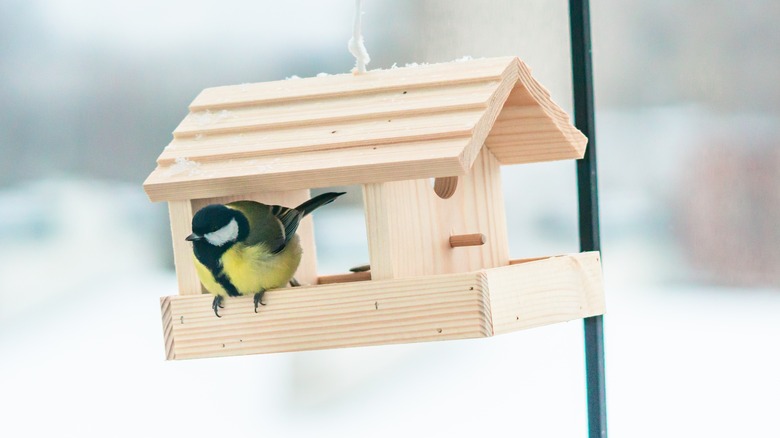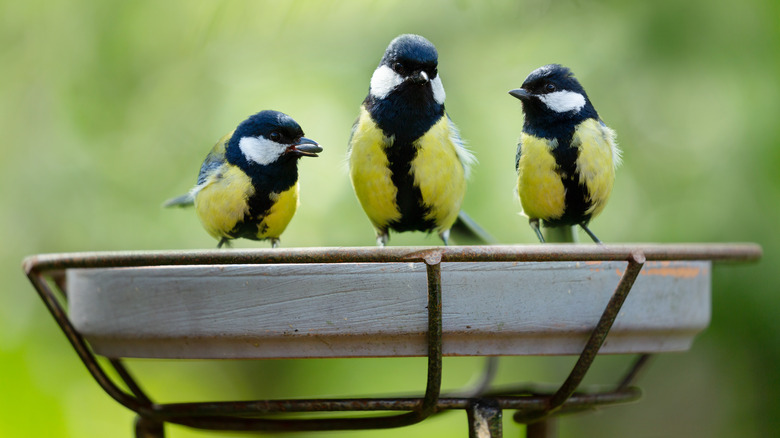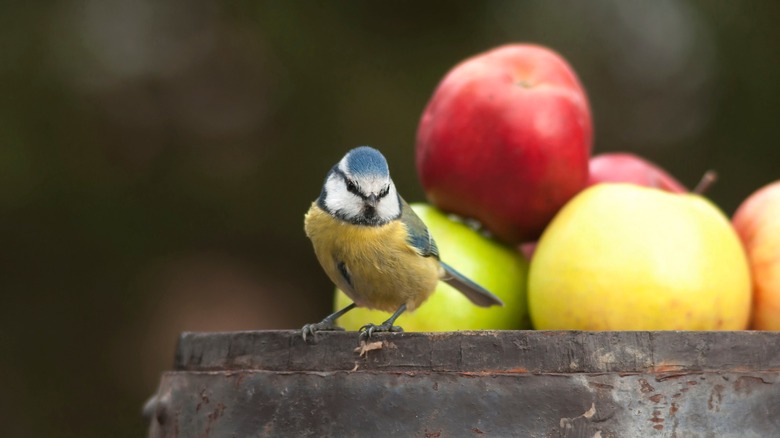The Type Of Fruit You Should Avoid Adding To Your Bird Feeder At All Costs
Adding a bird feeder to your garden can be a great way to get more colorful birds flocking to your yard for viewing. You can buy a variety of different styles premade including tube, hopper, and platform bird feeders. You might even decide on adding a special feeder designed for serving up fruit to your flock of avian friends. When deciding exactly what to feed them, there are a number of fruit-related things you should avoid adding to your bird feeder; avocados are one of them.
While humans can digest avocados without issue, that's not the case when it comes to birds. "A bird that has ingested avocado should be rushed to the nearest emergency veterinary facility," says Dr. Krista Keller in a University of Illinois Urbana-Champaign College of Veterinary Medicine feature. "If the avocado was eaten very recently, it may be possible to remove it from the bird's crop, a pouch in the esophagus where food is stored before it moves to the stomach and is digested." That's a scary scenario, and the culprit is one specific compound found in avocados.
The exact reason avocados are bad news for birds
There are actually quite a few human foods that aren't good for birds, so be sure to do some research before adding anything out of the ordinary to your feeders. Among the list of unacceptable foods are avocados, which contain persin. That's the toxic ingredient causing birds to become direly ill (even though it's not a problem for humans to consume them). Symptoms of persin poisoning in birds include collapsing, sluggishness, labored breathing, and even abrupt death, according to the University of Illinois Urbana-Champaign College of Veterinary Medicine.
In addition to the meat of an avocado — the part you might enjoy spreading on toast — never feed birds the skin or pit from this type of fruit. All parts of an avocado, even the leaves of an avocado plant, can be detrimental to a bird's heart health. There are, however, other fruits you can safely offer your backyard bird visitors without worry.
Fruits that are safe to add to your bird feeder
Since you now know not to add avocados to your bird feeder, you might be wondering which fruits are safe for bird consumption. Many recipes for bird food, including suet blocks and balls, include dried fruits like raisins, cranberries, and currants. When feeding these on their own, experts suggest soaking them in water overnight before placing them in your feeder. You'll attract species that commonly eat fruit like bluebirds, robins, and waxwings.
Other fruits such as raspberries, blueberries, and blackberries are also palatable to a variety of birds. Many birds will also eat citrus fruits like oranges in addition to apples, grapes, cherries, and plums. When serving oranges they can simply be halved and placed directly onto a platform feeder.
While apples and pears are on the safe list, their seeds are not. They contain a naturally occurring trace amount of a compound that produces Cyanide when digested by birds. The pits from peaches, plums and cherries can also be poisonous, just like avocados, so be sure to remove them before you offer these fruits up as sustenance in your backyard bird feeder.


